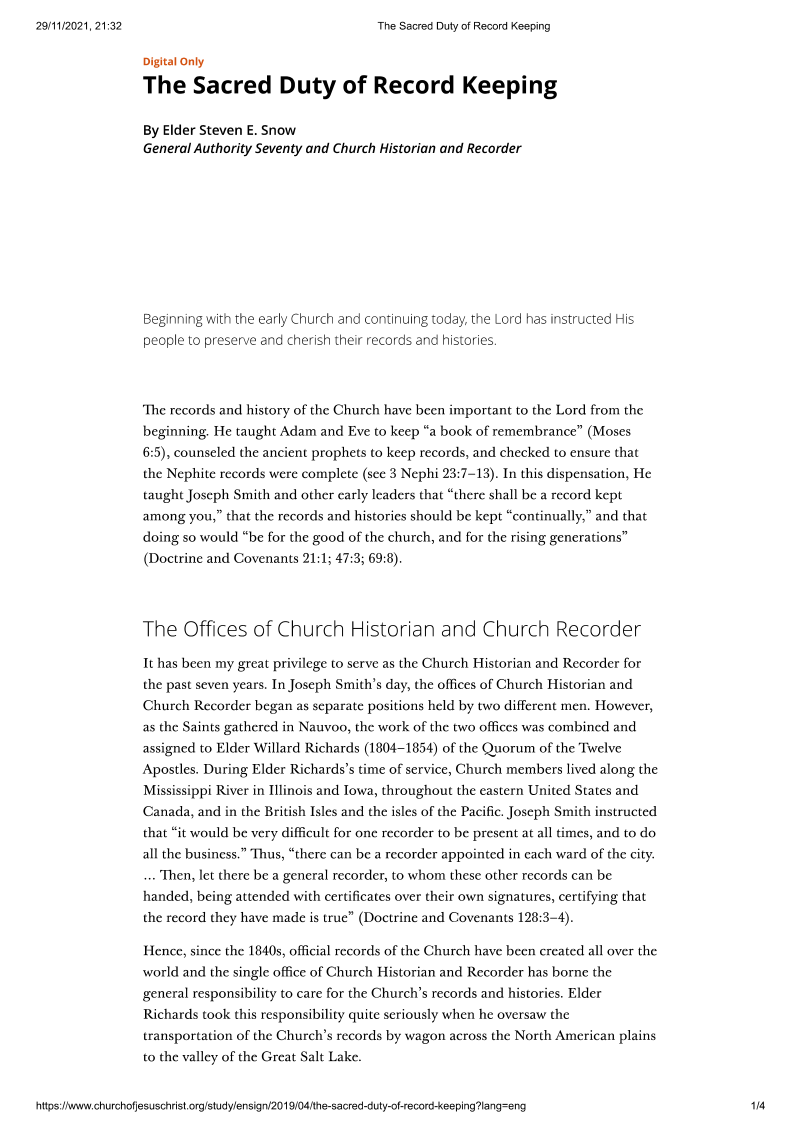Steven Snow describes how we keep records in order to keep God's commandments.
- Type
- Periodical
- Source
- Steven E. Snow LDS
- Hearsay
- Direct
- Reference
Steven E. Snow, "The Sacred Duty of Record Keeping (Online Exclusive)," Ensign (April 2019), accessed November 29, 2021
- Scribe/Publisher
- Ensign
- Audience
- Reading Public
- Transcription
The records and history of the Church have been important to the Lord from the beginning. He taught Adam and Eve to keep “a book of remembrance” (Moses 6:5), counseled the ancient prophets to keep records, and checked to ensure that the Nephite records were complete (see 3 Nephi 23:7–13). In this dispensation, He taught Joseph Smith and other early leaders that “there shall be a record kept among you,” that the records and histories should be kept “continually,” and that doing so would “be for the good of the church, and for the rising generations” (Doctrine and Covenants 21:1; 47:3; 69:8). . . . We keep the records because of the Lord’s commandments, and we use them to support the Church’s work of salvation and to help the Saints remember. Records help us see and understand the hand of God and His dealings in our lives (see 1 Nephi 19:22; Omni 1:17; Mosiah 1:3). Reviewing sacred records and histories can lead to revelation and knowledge (see 1 Nephi 5:17; Doctrine and Covenants 93:53). The records of the Church are also shared to strengthen the rising generations by publishing accurate historical information for use in seminary and institute classes and through other Church publications and programs (see 1 Nephi 5:21; Mosiah 1:4; Abraham 1:31). These same records also present the truth of the restored gospel to the public (see Joseph Smith—History 1:1) and broaden their understanding of and respect for the early members of the Church.
- Citations in Mormonr Qnas
The B. H. Roberts Foundation is not owned by, operated by, or affiliated with the Church of Jesus Christ of Latter-day Saints.

